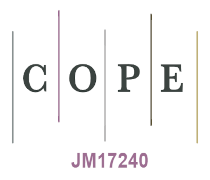Organisational stress
DOI:
https://doi.org/10.18778/1427-969X.10.07Keywords:
stres organizacyjny, systemowa struktura organizacji, strategia indywidualistyczna vs. strategia organizacyjnaAbstract
Tematem prezentowanego artykułu jest stres charakteryzujący organizacje, szczególnie organizacje typu biznesowego. Autor uzasadnia tezę, że zjawisko stresu może dotyczyć nie tylko jednostki, ale także innych struktur, m. in. tak złożonych, jak organizacje. Za teoretyczny punkt wyjścia przyjmuje przy tym koncepcję systemową. W artykule wymienione zostały najważniejsze przyczyny, a także następstwa organizacyjnego stresu. W artykule zostały również scharakteryzowane i porównane dwie dominujące strategie w zakresie radzenie sobie z omawianą formą stresu: strategia indywidualistyczna i organizacyjna.
References
Cieślak R., Klonowicz T. (2004), Wsparcie społeczne a stres pracy i bezrobocia, [in:] H. Sek, R. Cieślak, Wsparcie społeczne, stres i zdrowie, Wydawnictwo Naukowe PWN, Warszawa, 152–169
Google Scholar
Connell J. (2004), Options for the person – centred counsellor in working with stress problems: A break with tradition, ‘‘Stress News’’, 16, 1, www.isma.org.uk/stressnews/perscen2.htm
Google Scholar
Cox T., Leather P., Cox S. (1990), Stress, health and organisations, ‘‘Occupational Health Review’’, 23, 13–18
Google Scholar
Evans B., Reynolds P. (1993), Stress consulting: A client-centred approach, ‘‘Stress News’’, 5, 1, 2–6
Google Scholar
Hirigoyen M. F. (2003), Molestowanie w pracy, Wydawnictwo W Drodze, Poznań
Google Scholar
Keegan G. (2004), A holistic approach to stress management, ‘‘Stress News’’, 16, 1, www.isma.org.uk/stressnews.htm
Google Scholar
Leary M., Boydell T. (2001), Identyfikacja potrzeb szkoleniowych, Oficyna Ekonomiczna – Dom Wydawniczy ABC
Google Scholar
Lewin K. (1951), ‘‘Behavior and Development as a Function of the Total Situation’’; Field Theory in Social Science, Harper Torchbooks, New York
Google Scholar
Miller D. (2004), Tackling organisational stress within trade Unions, ‘‘Employee Relations’’, 12, 6, 8–10
Google Scholar
DOI: https://doi.org/10.1108/01425459010003538
Obholzer A. (ed.) (1994), The Unconscious at Work, Routledge, New York
Google Scholar
Palmer S. (1995), Stress management interventions in the workplace: A counselling psychologist’s experience and concerns, ‘‘Counselling Psychology Review’’, 10, 1, 17–21
Google Scholar
DOI: https://doi.org/10.53841/bpscpr.1995.10.1.17
Palmer S., Cooper C., Thomas K. (2001), Model of organisational stress for use within an occupational health education/promotion or wellbeing programme – A short communication, ‘‘Health Education Journal’’, 60, 4, 378–380
Google Scholar
DOI: https://doi.org/10.1177/001789690106000410
Pervin L. A. (1993), Personality: theory and research, John Wiley & Sons, New York
Google Scholar
Selye H. (1963), Stress życia, PZWL, Warszawa
Google Scholar
Smith J. (1998), Organisational Stress, Job Satisfaction and Employees, ‘‘Cranfield University School of Management, Stress News’’, 10, 2, http://www.isma.org.uk/stressnw/orgstress1,htm
Google Scholar
Stapley L. (1995), Organisational Stress in the National Health Service: An Intervention to Enable Staff to Address Organisational Sources of work-related Stress, Health Education Authority, London
Google Scholar
Świetochowski W. (2003), Elementy psychologii społecznej, Wydawnictwo IH PAN/MWSH-P, Warszawa–Łowicz
Google Scholar
Świetochowski W. (2005), Kompetencje rodziny w radzeniu sobie ze stresem spowodowanym bezrobociem jednego z rodziców, ‘‘Acta Universitatis Lodziensis’’, Folia Psychologica, 9, 41–53
Google Scholar
Terelak J. (2001), Psychologia stresu, Oficyna Wydawnicza BRANTA, Bydgoszcz
Google Scholar
Downloads
Published
How to Cite
Issue
Section
License

This work is licensed under a Creative Commons Attribution-NonCommercial-NoDerivatives 4.0 International License.








